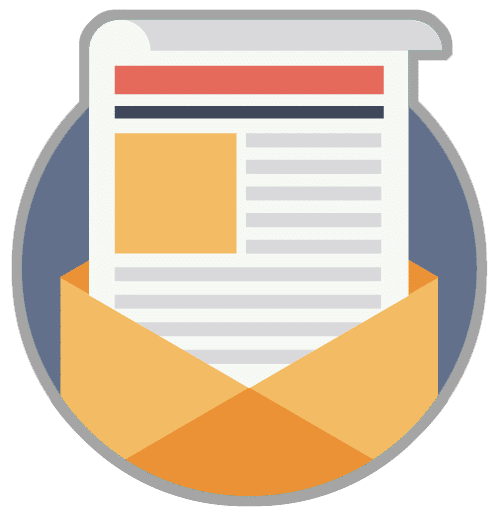
1. What Job Are You Applying For? – Have a Target Title: In your summary section, have a target title outlining the job you are pursuing. Don’t risk letting the recruiter have to decide what job you are applying for within their company. It is possible they won’t decide and just put you in the ‘no’ pile and move on to the next candidate who spells I out for them. Or they may wrongly assume the role you are pursuing. Or worse, they may realize what job you are applying to but think you are a poor communicator in doing so in an unclear manner.
2. Where Did You Work? Knowing where you work gives the recruiter context to your targeted job title. The Director of Marketing at the local doctor’s office and The Director of Marketing at a Fortune 500 company are two different jobs despite having the same title. Make your employers names easy to read and identify, as it helps the recruiter place your experience into context.
3. How Long Did You Work There & When? Recruiters need to know the chronological order of your employment. Period. Functional resumes and any format that disguise the dates do the exact opposite of what job seekers want in using these formats—and it annoy recruiters since they have to work to find the dates and put things in context. If you were a Director of Marketing 15 years ago versus a Director of Marketing today—those are two different jobs even though they share the same title. If you had the job for 10 months versus 10 years, that tells a recruiter two different stories. A recruiter must have time frame for your resume to have meaning.
4. Where Are The Numbers? Recruiters may not take the time in this initial screen to read every stat and detail, but recruiters want to see numbers on a resume upon first scan. When I scan a resume and see no numbers present in the content, it automatically makes me wonder if this person is achievement driven. Companies do not want to hire task masters—they want achievers. Having numerical measurement in some form, does not have to only refer to money, can set forth a subliminal impression that you are an achiever and you can express yourself comfortably in that manner.
5. Where Did You Go To School? Again, knowing where you went to school helps recruiters put things in context. This is not to assume recruiters always want to see that you went to an Ivy League school. If you attended a local regional school and went on to a Fortune 100 management job that tells a great story. If you went to a prominent school and are engaged in a start-up initiative, that tells an intriguing story. All the pieces, of which education is one, contribute a valuable piece to your story.
6. Does Your Resume Look Good And Is It Easy To Read? When a recruiter reads your resume, are they thinking, “What was he thinking with this format?” – Is the format dated, poorly formatted, visually unappealing and simply hard to read or understand? If a recruiter does not notice anything about your formatting, then you are at least not doing damage to your presentation. Ideally, you want something to think, “This person gets it” when they click open your resume. You have less than 5 seconds for that first impression and only one shot to get it right.
Written by Lisa Rangel, Executive Resume Writer
Daily Career Tips

Landing your next job doesn't have to be an overwhelming, frustrating or time-sucking task. Get daily tips on how to find the position you deserve, delivered right to your inbox:
- The #1 addition every resume needs in 2023 and beyond.
- How to get prepared for a job change even if you like the job you have.
- How to handle a chaotic job market and where to focus your job-seeking efforts (hint, it’s not the job boards).
- Where to find great jobs without submitting 500 meaningless job applications.
- How to slice through the Applicant Tracking System B.S. and land a 6- figure role you love.
- How to track down the “unpublished job market” and have your pick of the best jobs out there.
- How to write a resume that will hit hiring managers right between the eyes and have them scrambling to book your interview.
- How to get up to speed with your online branding and write a LinkedIn profile that positions you as the #1 expert in your field.
- How to approach job seeking with the “human touch” so you can keep the bots at bay.
- And finally, access to our 4-stage META Job Landing system we’ve used with thousands of job seekers just like you.

About Lisa
Lisa Rangel and The Chameleon Team are the only executive resume writing, LinkedIn profile development, and job landing consultancy who has been hired by LinkedIn and recognized by Forbes. Our 4-Stage META Job Landing System stems from decades of corporate and executive recruiting experience to position you to land your next 6 or 7-figure role faster.


 (917) 447-1815
(917) 447-1815